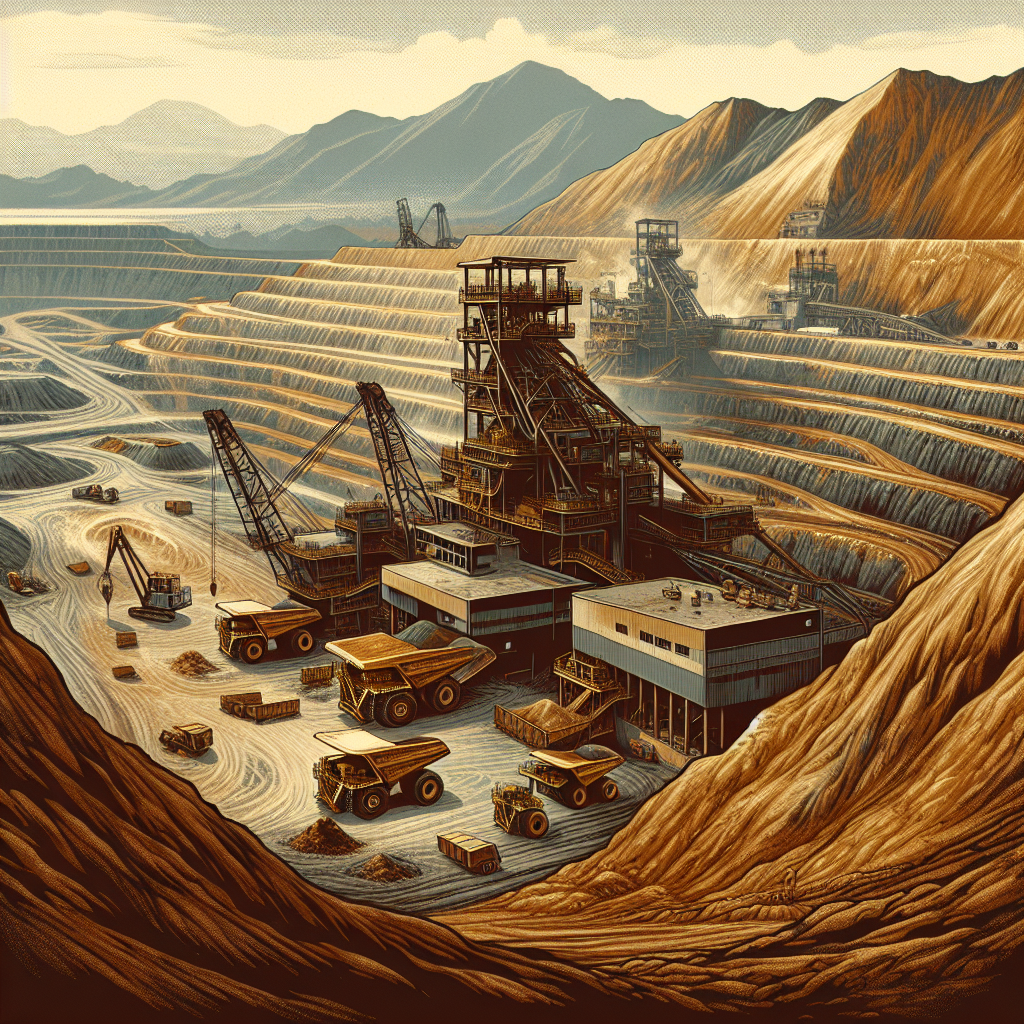Côte d’Ivoire Launches Major Reform to Legalize and Transform Gold Mining
“Côte d’Ivoire is leading the way in transforming artisanal and small-scale mining into a more professional, regulated sector,” said Mamadou Sangafowa-Coulibaly, Minister of Mines, Petroleum, and Energy.

- Country:
- Ivory Coast
Côte d’Ivoire has taken a bold and strategic step to reform its artisanal and small-scale gold mining (ASGM) sector through a landmark partnership with the World Bank and the World Gold Council. The newly launched Multistakeholder Partnership for Sustainable and Responsible Small-Scale Mining (MSPI) brings together government agencies, international institutions, and major industry players in an effort to formalize a historically informal and illicit sector that sustains over 500,000 livelihoods but has long been marred by regulatory gaps, environmental degradation, and widespread smuggling.
The agreement—signed today in Abidjan—aims to promote legal, safe, and sustainable small-scale gold mining, improve traceability in gold supply chains, and strengthen governance frameworks while enhancing economic benefits for communities.
A Sector with Enormous Potential—and Enormous Risks
Artisanal and small-scale gold mining is a vital economic lifeline for many rural communities in Côte d’Ivoire. However, the informal nature of the sector has made it a breeding ground for illicit trade, poor labor conditions, environmental harm, and insecurity.
In 2022 alone, Côte d’Ivoire is estimated to have lost 40 metric tons of gold—worth over $2 billion—to illegal exports, driven by regional instability and weak enforcement capacity. The loss of this revenue deprives the state of critical resources and undermines the development potential of the mining industry.
“Côte d’Ivoire is leading the way in transforming artisanal and small-scale mining into a more professional, regulated sector,” said Mamadou Sangafowa-Coulibaly, Minister of Mines, Petroleum, and Energy. He hailed the MSPI as a “crucial step” toward making mining “safer, more transparent, and a driver of growth, development, and job creation.”
Building a Legal and Traceable Gold Supply Chain
The MSPI will create an integrated framework to transition small-scale gold production into the formal economy. This includes:
-
Establishing legal gold trading channels for small-scale operators.
-
Enhancing traceability mechanisms in the gold supply chain.
-
Improving mine site infrastructure, including processing facilities.
-
Providing training and technical support to artisanal miners.
-
Strengthening security and regulatory oversight.
-
Promoting environmental and social best practices.
The initiative has the backing of major mining firms such as Endeavor Mining and Perseus Mining, along with the Chamber of Mines of Côte d’Ivoire. These large-scale companies will collaborate with artisanal operators by sharing expertise, offering technical training, and helping adopt international standards, thus creating a more inclusive and responsible mining ecosystem.
World Bank and World Gold Council: Driving Change
The World Bank will assist the government in aligning its reforms with global best practices, particularly regarding governance, regulation, and capacity building. The World Bank’s involvement includes support for institutional reform, environmental safeguards, and frameworks that facilitate community participation and transparency.
“This is a truly innovative mechanism,” said Marie-Chantal Uwanyiligira, World Bank Country Director for Côte d’Ivoire, Benin, Guinea, and Togo. “It brings together large and small miners in a shared effort to promote sustainability, transparency, and economic opportunity—especially for youth and women, who are often marginalized in mining value chains.”
The World Gold Council will focus on the technical and market aspects of reform, including:
-
Developing model small-scale mines.
-
Improving supply chain infrastructure.
-
Collaborating with the London Bullion Market Association (LBMA) and other assurance bodies to ensure gold from these sites is ethically sourced and traceable.
“This is a groundbreaking approach to responsible mining,” noted Terry Heymann, Chief Strategy Officer at the World Gold Council. “By fostering collaboration between industrial and artisanal miners, we can raise standards, exclude illicit actors, and deliver shared benefits for miners, governments, and communities alike.”
Regional Implications and Barrick’s Position
Côte d’Ivoire’s pioneering effort could set a precedent for West Africa, where artisanal mining is widespread but often unregulated. Countries like Mali, Burkina Faso, Ghana, and Guinea also struggle with the dual challenge of supporting livelihoods while controlling illicit mining activity and smuggling.
Barrick Gold Corporation, a major player in Côte d’Ivoire through its Tongon mine, helped shape the MSPI but is not formally participating due to ongoing negotiations to sell the Tongon asset. However, the company has committed to encouraging the future owner to engage with the initiative.
A Path Toward Safer, Cleaner, and More Inclusive Mining
The MSPI represents a visionary approach to a sector that, if properly managed, could catalyze rural development, stimulate formal job creation, and generate domestic revenue critical for public services. The success of the initiative will depend on strong political commitment, multi-stakeholder collaboration, and transparent monitoring mechanisms.
Côte d’Ivoire’s gold mining reform offers a powerful example of how inclusive partnerships can bridge the gap between economic necessity and responsible resource governance—a model with potential impact far beyond its borders.










